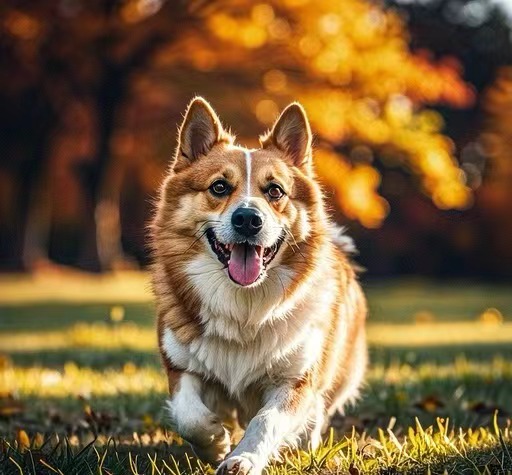
oleh TCMVET | Jun 5, 2024 | Kanker & Tumor Anjing
Squamous cell carcinoma (SCC) is a common type of skin cancer that can affect dogs. This article delves into the causes, symptoms, and treatment options for SCC in dogs, providing valuable insights for pet owners who want to ensure the best care for their furry friends.
What is Squamous Cell Carcinoma?
Squamous cell carcinoma is a malignant tumor that originates from the squamous epithelial cells. These cells are found in various parts of a dog’s body, including the skin, mouth, and respiratory tract. SCC can appear anywhere but is most commonly found in areas exposed to sunlight, such as the nose, ears, and belly.
Causes of Squamous Cell Carcinoma in Dogs
Several factors contribute to the development of SCC in dogs:
- Sun Exposure: Prolonged exposure to ultraviolet (UV) rays is a significant risk factor, especially for dogs with light-colored or thin coats.
- Usia: Older dogs are more prone to developing SCC.
- Genetics: Certain breeds, such as Boxers, Bull Terriers, and Dalmatians, have a higher predisposition to SCC.
- Faktor lingkungan: Exposure to harmful chemicals or pollutants may increase the risk of SCC.
Symptoms of Squamous Cell Carcinoma in Dogs
Recognizing the early signs of SCC is crucial for timely intervention. Symptoms may vary depending on the location of the tumor but generally include:
- Skin Lesions: Persistent sores or ulcers that do not heal, often with a raised, crusty, or scaly appearance.
- Oral Lesions: Red, swollen, or bleeding gums, bad breath, and difficulty eating if the carcinoma is in the mouth.
- Nasal Tumors: Nasal discharge, bleeding, or difficulty breathing if the SCC is in the nasal cavity.
- Ketimpangan: If the tumor affects the paw pads, it may cause pain and difficulty walking.
Diagnosing Squamous Cell Carcinoma in Dogs
Early diagnosis is key to effective treatment. If you notice any suspicious lesions or symptoms, consult your veterinarian immediately. Diagnostic methods include:
- Pemeriksaan fisik: A thorough check-up to assess the lesion’s appearance and location.
- Biopsi: Taking a tissue sample from the lesion to examine under a microscope.
- Pencitraan: X-rays, CT scans, or MRIs to determine the extent of the tumor and if it has spread to other areas.
Treatment Options for Squamous Cell Carcinoma in Dogs
The treatment plan for SCC depends on the tumor’s location, size, and whether it has metastasized. Common treatments include:
- Operasi: Surgical removal of the tumor is often the primary treatment, especially for localized SCC.
- Terapi radiasi: Used to target and destroy cancer cells, particularly if the tumor is in a location that makes surgery challenging.
- Kemoterapi: May be recommended if the SCC has spread or if surgery and radiation are not viable options.
- Krioterapi: Freezing the tumor with liquid nitrogen can be effective for small, superficial tumors.
- Topical Treatments: Medications applied directly to the tumor can help manage certain cases of SCC.
Preventing Squamous Cell Carcinoma in Dogs
While not all cases of SCC can be prevented, you can take steps to reduce your dog’s risk:
- Limit Sun Exposure: Keep your dog indoors during peak sunlight hours and use pet-safe sunscreens on vulnerable areas.
- Pemeriksaan Reguler: Routine veterinary visits can help detect early signs of cancer and other health issues.
- Diet sehat: A balanced diet supports overall health and strengthens the immune system.
- Monitor for Changes: Regularly check your dog’s skin, mouth, and other areas for any unusual changes or growths.
Kesimpulan
Squamous cell carcinoma in dogs is a serious but manageable condition if caught early. Understanding the risk factors, recognizing the symptoms, and seeking prompt veterinary care can make a significant difference in your dog’s prognosis. By staying informed and proactive, you can ensure your pet receives the best possible care and support.

oleh TCMVET | Jun 5, 2024 | Penelitian dan Berita
Watching a beloved pet suffer from a serious illness like lymphoma can be one of the most challenging experiences for any dog owner. Understanding the signs that indicate your dog is reaching the end stages of this disease can help you provide the best possible care and comfort during their final days. In this article, we will discuss the key signs that your dog may be dying from Stage 4 lymphoma and how you can support them through this difficult time.
What Is Stage 4 Lymphoma in Dogs?
Lymphoma is a type of cancer that affects the lymphatic system, which is a crucial part of the immune system. Stage 4 lymphoma indicates that the cancer has progressed significantly and has likely spread to other organs beyond the lymph nodes, such as the liver, spleen, and bone marrow.
Key Signs Your Dog Is Dying from Stage 4 Lymphoma
1. Severe Weight Loss
One of the most noticeable signs of advanced lymphoma is severe weight loss. Despite eating, your dog may continue to lose weight rapidly due to the cancer’s impact on their body’s ability to absorb nutrients.
2. Loss of Appetite
Dogs with Stage 4 lymphoma often lose interest in food. This can be due to nausea, pain, or the body’s declining function. Encouraging your dog to eat small, palatable meals can sometimes help, but they may still refuse food.
3. Extreme Fatigue and Weakness
As the disease progresses, your dog may become extremely tired and weak. They might struggle to get up, walk, or engage in activities they once enjoyed. This fatigue is a result of the cancer spreading and the body’s declining energy levels.
4. Breathing Difficulties
Breathing difficulties are common in dogs with advanced lymphoma, especially if the cancer has spread to the chest area. You may notice labored or rapid breathing, coughing, or an increased effort to breathe.
5. Swollen Lymph Nodes
Swollen lymph nodes are a primary symptom of lymphoma, but in Stage 4, these nodes can become very large and hard. You might notice these enlarged nodes under your dog’s jaw, behind the knees, or in the groin area.
6. Pale Gums and Mucous Membranes
Pale gums and mucous membranes can indicate anemia, which is common in dogs with late-stage lymphoma. This occurs because the cancer affects the body’s ability to produce healthy red blood cells.
7. Increased Thirst and Urination
Some dogs with Stage 4 lymphoma may show increased thirst and urination. This can be a result of the cancer affecting the kidneys or other metabolic processes in the body.
Providing Comfort and Care
While there is no cure for Stage 4 lymphoma, there are ways to make your dog’s remaining time as comfortable as possible:
- Manajemen Nyeri: Consult your veterinarian about pain relief options to ensure your dog is not suffering unnecessarily.
- Hidrasi: Keep your dog hydrated by offering water regularly. If they refuse to drink, discuss alternative hydration methods with your vet.
- Comfortable Environment: Create a comfortable resting area for your dog, with soft bedding and easy access to food and water.
- Bantuan emosional: Spend quality time with your dog, offering affection and companionship. Your presence can provide great comfort during this difficult time.
Kesimpulan
Recognizing the signs that your dog is dying from Stage 4 lymphoma is crucial for providing appropriate care and comfort. By understanding these symptoms and working closely with your veterinarian, you can ensure that your dog’s final days are as peaceful and pain-free as possible. Cherish the moments you have left with your furry friend, and provide them with the love and care they deserve.

oleh TCMVET | Jun 5, 2024 | Kanker & Tumor Anjing
As pet owners, discovering a lump on your dog can be alarming. However, it’s important to note that not all lumps are cancerous. In fact, many lumps on dogs are benign. Understanding the nature of these lumps and how to manage them can help you care for your pet better and reduce unnecessary anxiety.
Key Characteristics of Non-Cancerous Lumps
Non-cancerous lumps often have the following characteristics:
- Slow Growth: These lumps typically grow slowly, sometimes over months or even years before showing significant changes.
- Good Mobility: Benign lumps are usually soft and can move easily under the skin, rather than being fixed in one spot.
- Painless: Most benign lumps do not cause pain or discomfort to the dog unless they are located in a sensitive area.
- Regular Shape: These lumps generally have smooth and regular edges.
Common Types of Non-Cancerous Lumps
1. Lipomas
Lipomas are the most common type of non-cancerous lump, often found in older dogs. They are made up of fat cells, are soft to the touch, and can move easily. Lipomas typically do not cause pain or discomfort.
2. Sebaceous Cysts
Sebaceous cysts are small sacs filled with fluid or semi-solid material, formed from skin cells. These cysts are usually harmless but may require treatment if they rupture or become infected.
3. Scar Tissue
Scar tissue can form lumps following an injury. These lumps are generally harmless but should be monitored for any changes.
How to Handle Non-Cancerous Lumps
While non-cancerous lumps are typically harmless, regular monitoring and veterinary checks are essential to ensure they do not grow or change. Here are some tips on managing these lumps:
- Pemeriksaan Reguler: Examine your dog’s skin monthly to look for new lumps or changes in existing ones.
- Keep Records: Document the size, shape, and location of any lumps to provide detailed information during vet visits.
- Consult Your Vet: If you find any lump, it’s best to consult your veterinarian. They may perform a fine needle aspiration or biopsy to determine the nature of the lump.
Kesimpulan
Non-cancerous lumps on dogs are often harmless but require attention and care. By regularly checking your dog and consulting with your veterinarian, you can ensure your pet remains healthy and promptly address any issues. Remember, attention to detail and timely action are key to managing your pet’s health effectively.

oleh TCMVET | Jun 5, 2024 | Kanker & Tumor Anjing
When it comes to our furry companions, ensuring their health and well-being is a top priority. As pet owners, facing the news of a cancer diagnosis can be overwhelming and heartbreaking. However, there are holistic approaches and effective supplements that can support your pet’s health journey. In this article, we explore the world of pet cancer supplements available online, emphasizing the remarkable benefits of TCMVET Baituxiao.
The Rise of Holistic Pet Care
In recent years, holistic pet care has gained immense popularity among pet owners. This approach focuses on treating the whole animal, considering their physical, emotional, and environmental well-being. Holistic pet care includes natural supplements, dietary adjustments, and alternative therapies designed to support the body’s healing processes.
Why Choose Natural Supplements for Pet Cancer?
Natural supplements offer numerous benefits for pets diagnosed with cancer. These supplements can:
- Boost the Immune System: Strengthening the immune system helps your pet fight off cancer cells more effectively.
- Reduce Tumor Growth: Certain natural ingredients have been shown to slow down the growth of tumors.
- Improve Quality of Life: Supplements can enhance your pet’s energy levels, appetite, and overall mood, making their cancer journey more comfortable.
- Minimal Side Effects: Compared to conventional treatments, natural supplements typically have fewer side effects, making them a gentler option for your pet.
Introducing TCMVET Baituxiao: A Proven Solution
Among the myriad of natural supplements available, TCMVET Baituxiao stands out for its effectiveness and quality. This herbal formula is specifically designed to manage tumors and enhance vitality in pets.
Key Benefits of TCMVET Baituxiao:
- Tumor Management: Baituxiao has been formulated to reduce the size and growth rate of tumors in pets.
- Boosts Vitality: Pets using Baituxiao often exhibit increased energy levels and improved spirits, leading to a better quality of life.
- Bahan Alami: Made from high-quality herbal ingredients, Baituxiao offers a natural and safe approach to pet health.
Success Stories from Pet Owners
Pet owners worldwide have shared their success stories with TCMVET Baituxiao. One Labrador’s mammary tumor stopped growing and even shrank after starting on Baituxiao, with the dog becoming more playful and in better spirits. An elderly cat with a skin tumor showed significant improvement, avoiding the need for surgery and enjoying a more active life. These testimonials highlight the transformative impact of Baituxiao on pets’ health and well-being.
Where to Buy Pet Cancer Supplements Online
When looking for effective pet cancer supplements online, it’s essential to choose reputable sources. Ensure that the products are made from high-quality, natural ingredients and have positive reviews from other pet owners. TCMVET Baituxiao is available through trusted online platforms, providing a convenient way to support your pet’s health journey.
Kesimpulan
Facing a cancer diagnosis in your pet is challenging, but with the right approach, you can make a significant difference in their quality of life. Embracing holistic pet care and incorporating effective supplements like TCMVET Baituxiao can offer your pet the support they need. Explore the world of natural pet cancer supplements online and take a step towards a healthier, happier life for your beloved companion.

oleh TCMVET | Jun 4, 2024 | Kanker & Tumor Anjing
Nasal tumors in dogs are a serious health concern, often requiring a multifaceted treatment plan. While traditional veterinary care is crucial, many pet owners seek holistic treatments to support their dog’s health and improve their quality of life. In this article, we will explore holistic approaches to treating nasal tumors in dogs, highlighting natural therapies that can complement conventional treatments.
Memahami Tumor Hidung pada Anjing
Nasal tumors are abnormal growths within the nasal cavity and sinuses. They can be benign or malignant, with symptoms often including nasal discharge, sneezing, facial swelling, and difficulty breathing. Early diagnosis and a comprehensive treatment plan are essential for managing this condition effectively.
Benefits of Holistic Treatments
Holistic treatments aim to support the body’s natural healing processes, reduce symptoms, and improve overall well-being. These therapies can be used alongside conventional treatments to enhance their effectiveness and mitigate side effects.
Top Holistic Treatments for Nasal Tumors in Dogs
- Pengobatan Herbal:
- Kunyit: Known for its anti-inflammatory and anti-cancer properties, turmeric can help reduce inflammation and slow tumor growth.
- Essiac Tea: A blend of herbs traditionally used to support cancer treatment, Essiac tea may help boost the immune system and improve overall health.
- susu thistle: Supports liver function and detoxification, which can be beneficial during cancer treatment.
- Pola Makan dan Nutrisi:
- Diet seimbang: A diet rich in antioxidants, omega-3 fatty acids, and high-quality proteins can support the immune system and overall health.
- Suplemen: Omega-3 fatty acids, vitamins C and E, and probiotics can enhance immune function and reduce inflammation.
- Akupunktur:
- Acupuncture can help manage pain, reduce inflammation, and improve respiratory function. It can be an effective complementary therapy for dogs with nasal tumors.
- Homeopathy:
- Homeopathic remedies tailored to your dog’s specific symptoms and constitution can support the body’s natural healing processes and alleviate symptoms.
- Essential Oils:
- Aromatherapy with essential oils like frankincense and myrrh can help reduce inflammation and support respiratory health. Always consult a veterinarian experienced in aromatherapy before using essential oils on pets.
- Minyak CBD:
- Cannabidiol (CBD) oil has anti-inflammatory and analgesic properties that can help manage pain and improve quality of life in dogs with cancer. Ensure the CBD product is specifically formulated for pets.
Implementing a Holistic Treatment Plan
- Consultation with a Holistic Veterinarian:
- A holistic veterinarian can provide a personalized treatment plan tailored to your dog’s specific needs and condition.
- Combining Therapies:
- Integrate holistic treatments with conventional therapies like surgery, radiation, or chemotherapy for a comprehensive approach.
- Pemantauan Reguler:
- Regular check-ups with your vet to monitor your dog’s condition and adjust the treatment plan as necessary.
- Perawatan Suportif:
- Provide a comfortable environment, reduce stress, and ensure your dog gets plenty of rest and gentle exercise.
Real-Life Story: Rocky’s Journey with Holistic Treatment
Rocky, a 10-year-old Boxer, was diagnosed with a nasal tumor. His owners opted for a holistic treatment plan alongside conventional care. They included turmeric, Essiac tea, and CBD oil in his diet, along with regular acupuncture sessions. These holistic treatments helped manage Rocky’s symptoms, reduced inflammation, and improved his quality of life significantly. Rocky continued to enjoy his daily activities with minimal discomfort.
Kesimpulan
Holistic treatments for nasal tumors in dogs offer a natural and supportive approach to managing this serious condition. By integrating herbal remedies, nutrition, acupuncture, and other holistic therapies with conventional veterinary care, you can enhance your dog’s health and well-being. Always consult with a holistic veterinarian to develop a comprehensive and personalized treatment plan for your dog.






